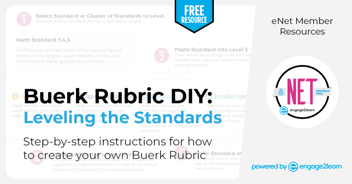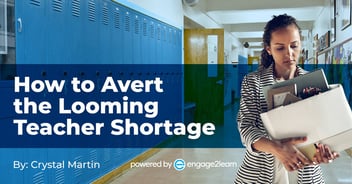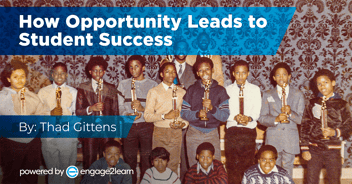Accountability is not a Four-Letter Word | engage2learn

I have been in the public education system for over three decades as both a student and an educator. During my time in public education, the focus has always been on using standardized tests to hold campuses and districts accountable for providing an equitable education for all students. In our current decade, not only are schools held accountable, but now a number of school districts are using student data from standardized tests as a way to evaluate the job performance of teachers.
While the test-based accountability movement has closed the achievement gap between ethnic groups, it has produced students with graduate ready content knowledge skills. However, these students lack the Future Ready Skills employers are seeking. The reason is because educators have focused on rote memorization skills to get students to pass a test. The system is not focusing on the soft skills students need to be successful in college or a career.
The solution is to start focusing on Future Ready Skills in public schools, to better prepare students for the future.
The solution is to start focusing on Future Ready Skills in public schools, to better prepare students for the future. Click To TweetBut what are Future Ready Skills?
According to Forbes, the top three skills employers most want are the (1) ability to work in team, (2) ability to make decisions and solve problems, and (3) ability plan, organize, and prioritize work. The National Association of Colleges and Employers said the skills they most look for in a resume are leadership, ability to work in a team, communication skills, problem-solving skills, strong work ethic, initiative, analytical/quantitative skills, flexibility/adaptability, technical skills, and computer skills.
Most recently, the World Economic Forum’s Future of Jobs report argued that by 2020, “Creativity will become one of the top three skills workers will need. With the avalanche of new products, new technologies and new ways of working, [employees] are going to have to become more creative in order to benefit from these changes.”
At engage2learn, we have done a meta-analysis based on our work in public schools. We’ve combined this analysis with research from employers and businesses to compile a list of seven Future Ready Skills that all students need to thrive during their time in school and beyond. Those skills are autonomy, collaboration, communication, creativity, critical thinking, growth mindset, and professional ethics.
So, how do we change the focus from producing only graduate ready students to producing graduate ready and future ready students? We change the focus of accountability from one based on tests to one based on multiple measures.
What skills do you hope students will gain as a result of the 20,000 hours they spend in school? Click To TweetAt engage2learn, we use a collaborative approach to ask local communities, “What skills do you hope students will gain as a result of the 20,000 hours they spend in school?” Based on the response to that question, we work with districts to design learner outcomes. Then districts can change to a Community Based Accountability (CBA) system based on a big data approach. This combines measures such as engagement results, district learner outcome results, graduation rates, and attendance rates.
As part of a multiple measures approach, some districts are using the Gallup student poll to measure hope, engagement, well-being, and the engage2learn Future Ready Skills assessment to measure growth in learner outcomes.
When school districts can change the focus from a test-based accountability system to a Community Based Accountability system focused on multiple measures, educators will change their focus to produce students who have the skills to not only master a test, but apply Future Ready Skills to be successful in any path they choose beyond high school.



